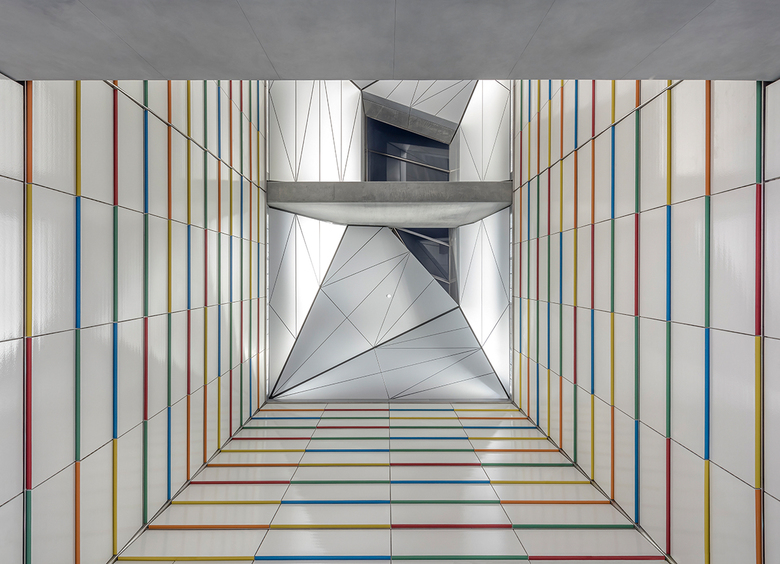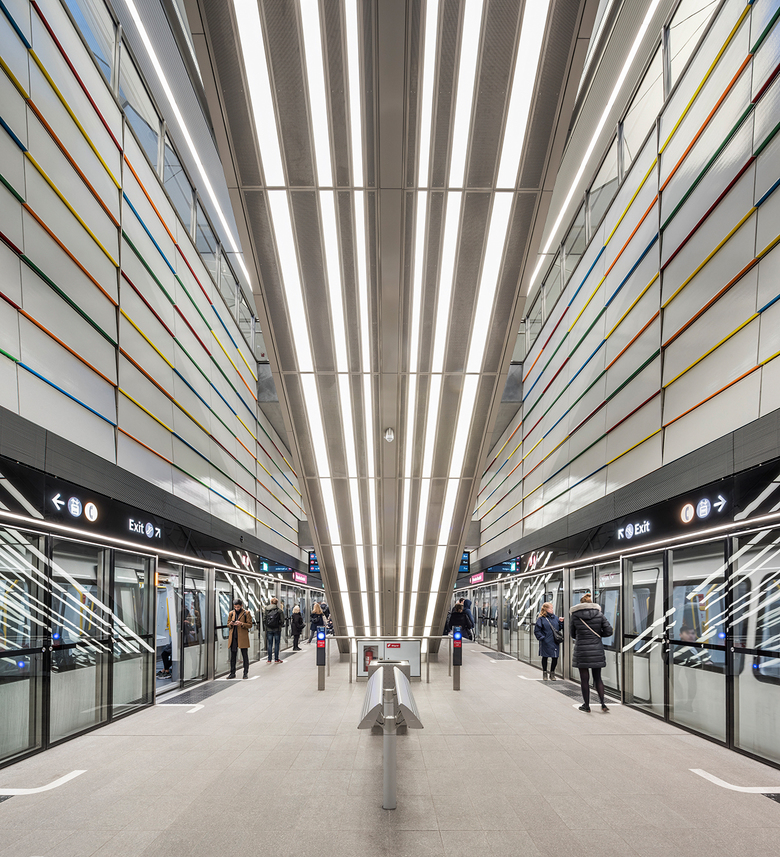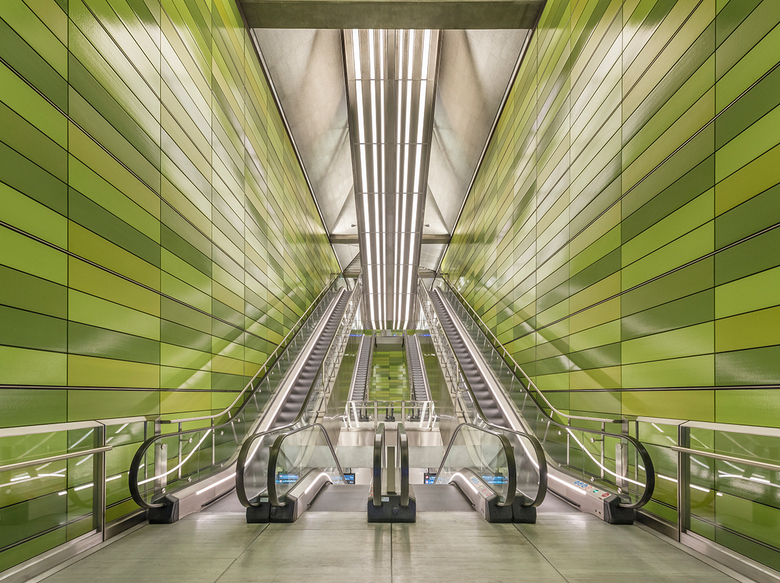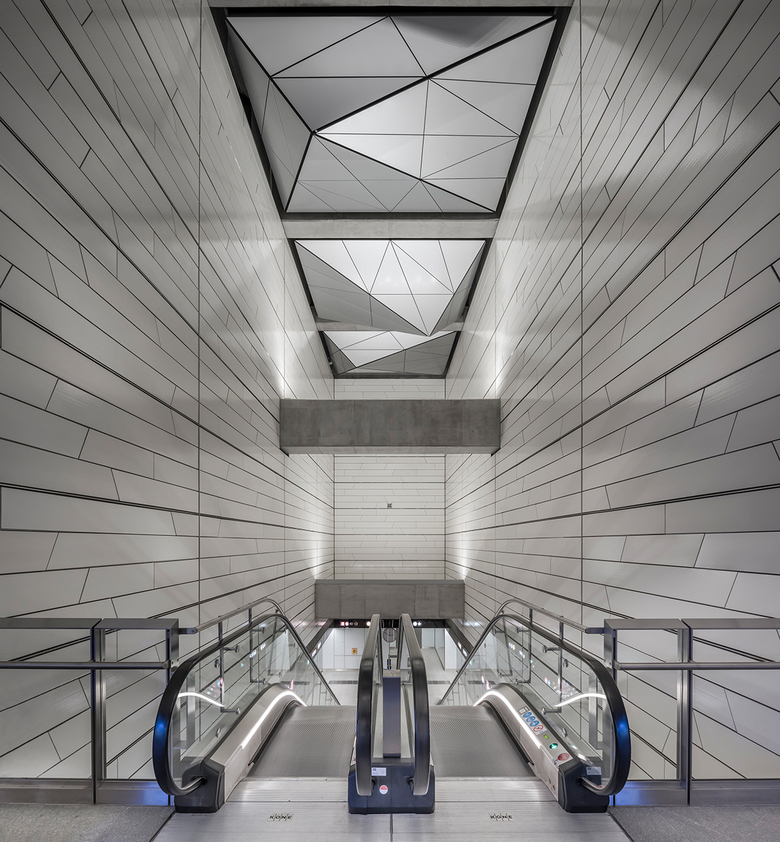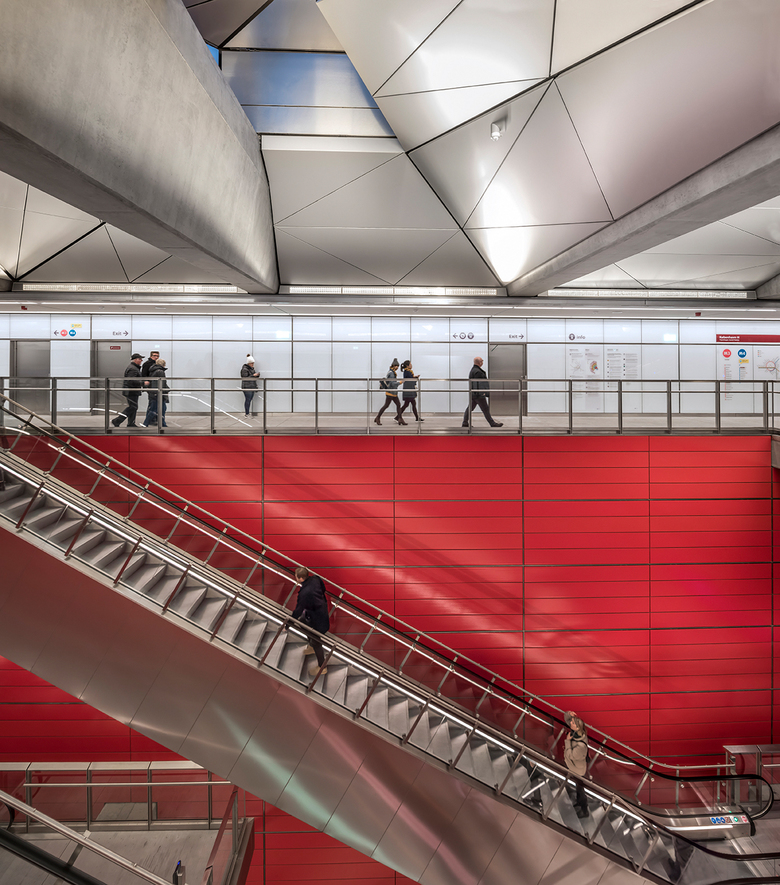Copenhagen's Colorful Commute
On September 29, 2019, Copenhagen's Cityringen (City Circle Line) metro opened to the public. Color is used to aid in wayfinding and to create a distinct identity for each of its seventeen stations. The entrances and platforms of some of the stations are lined in ceramic panels made by MOEDING.
Location: Copenhagen, Denmark
Client: Salini Impregilo S.p.A.
Architect: Arup
Manufacturer: MOEDING Keramikfassaden GmbH
Product: LONGOTON® ceramic panels
The Cityringen, aka M3, is the third of four metro lines in Denmark's capital, coming after the M1 and M2 lines completed in 2002 and the north and south legs of M4 that will open, respectively, in 2020 and 2024. Cityringen, as its name implies, makes a loop around Copenhagen, connecting the city center with the districts of Vesterbro, Nørrebro, Østerbro, and the city of Frederiksberg.
Traversing sixteen kilometers, the Cityringen touches a variety of places across Copenhagen, leading to a "user-centric design" inspired by the context of each station. According to Arup, which led the architectural design, they were inspired by Scandinavian design and and therefore created "spacious, light-filled stations with distinctive internal façades that echo the local spirit of the areas they connect to." A few examples are highlighted here, each of them using color underground to relate to conditions above ground. Red stations, as dictated by the Danish State Railways, indicate a transfer is available to another line.
While the colors change from one station to the next, the LONGOTON® ceramic panels by MOEDING share an "Orange Peel" effect. "During the baking process, a wave-like relief is created in the glaze," as described by MOEDING, "creating a vivid surface that changes depending on the viewing angle and reflections." Arup architect Anders Nøhr concurred, saying in statement that the panels "reveal a highly distinctive material and surface structure." The clay and loam brick panels, installed as part of a rear-ventilated facade system, also have a relatively low weight," per Nøhr, "and are an extremely resilient, robust, vandal-proof and age-resistant cladding solution." In all, nearly 12,000 LONGOTON® ceramic panels in various colors adorn seven of the Cityringen stations.
